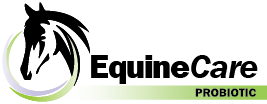Common Skin Infections In Horses

Every horse owner is bound to come across skin issues at some point. Dermatological problems in horses can be tricky. Diseases are prevalent throughout the year, although some specific ones can be seasonal. Treatment should be swift. Along with alleviating your horses discomfort, the skin is a major organ and the biggest barrier to disease entering any animals internal systems, so you need to be onto it to prevent further complications.
While rarer problems aren’t impossible, there are a core group of issues you’re most likely to face. Let’s take a quick look at these:
Rain Scald - Common in warm, moist environments. A microorganism causes crusty lumps and matted hair that may pull away leaving bald spots.
Our product is intended for minor skin conditions only.
Mud Fever (Pastern dermatitis) - Causes inflammation, itching, swelling and scaly scabs primarily on the lower legs.
Our product is intended for minor skin conditions only.
Ringworm - A fungal infection causing rounded, hairless patches that crust and scab. Very infectious and can be passed on to you from your horse.
Warts - Caused by the Equine Papilloma Virus, lesions are usually found around the muzzle, and more commonly in young horses. Will resolve itself in time through gaining natural immunity, but are highly contagious in the meantime.
Aural Plaques - Whitish crusty plaques that form in the ears. The exact cause is unknown but suspected to be caused by papilloma infection through biting insects.
Staph Infection - Staphylococcus Aureus shows up as warm, painful skin with focal crusts. Some horses are prone to these infections and MRSA (Methicillin resistant s. aureus) is becoming more common in our horse populations, particularly where horses have had frequent antibiotic treatments.
Our product is intended for minor skin conditions only.
All serious skin complaints should be looked at by your veterinarian. Depending on the cause you will be offered a range of treatments. Most common skin complaints have similar underlying causes - bacterium and fungi. Antibiotics, antifungals and anti-microbials are the regular go-to’s. Now, however, you have the option to go in the other direction. For people concerned about the side effects of antibiotic overuse, or who are looking for a different, more natural solution EquineCare Probiotic is an excellent product designed to overcrowd the infections with good bacteria and microbes. Customers are having excellent results treating ailments that have previously resisted traditional routes.
All skin issues, regardless of cause, leave your horse at risk of opportunistic secondary infections. All breaks in the skin give germs a chance to get in and take hold. EquineCare is a great preventative tool you can use once or twice a week to keep any pathogens at bay.

